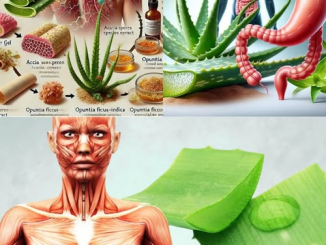

The Datura genus, commonly known as Devil’s Trumpet or Thorn Apple, captivates with its dramatic trumpet-shaped flowers and spiky seed pods.
However, beneath this alluring exterior lies a potent toxicity that poses severe risks to humans and animals alike. Let’s dive into the characteristics, dangers, and essential safety measures associated with Datura
What Is the Datura Genus?
The Datura genus belongs to the nightshade family (Solanaceae) and is native to the Americas but has now spread globally. Often found in disturbed soils, roadsides, and gardens, these
Key Identifying Features:
- Flowers: Large, trumpet-shaped, available in white, purple, or yellow, often blooming at night.
- Seed Pods: Spiny, round capsules filled with seeds.
- Growth Habit: Hardy, fast-growing shrubs that thrive in various conditions.
Despite their beauty, all parts of the Datura plant are highly poisonous.
Common Species of Datura
1. Datura stramonium (Jimsonweed or Thorn Apple)
- Recognized by its white or purple trumpet-shaped flowers and spiky seed pods.
- Known for its hallucinogenic properties, though even small amounts can cause severe poisoning.
2. Datura metel (Horn of Plenty)
- Features showy flowers in white, yellow, or purple.
- Often cultivated for ornamental purposes but equally toxic.
3. Datura inoxia (Moonflower)
- Fragrant white flowers that bloom at night.
- Often confused with harmless moonflower vines, leading to accidental poisoning.
4. Datura ferox (Long-spined Thorn Apple)
- Notable for its large, spiny seed pods.
- One of the most toxic species due to its high alkaloid concentration.
The Dangerous Alkaloids in Datura
- Atropine
- Scopolamine
- Hyoscyamine
The toxicity of Datura is attributed to its potent tropane alkaloids, including. These compounds interfere with the central nervous system, leading to potentially life-threatening symptoms even in small doses.
Symptoms of Datura Poisoning
- Hallucinations and Delirium: Often vivid and terrifying.
- Dilated Pupils and Blurred Vision: Light sensitivity and difficulty focusing.
📌Thank you for reading the article.
- Dry Mouth and Difficulty Swallowing: Classic signs of atropine poisoning.
- Increased Heart Rate and Blood Pressure: Potentially leading to cardiovascular issues.
- Seizures and Coma: In severe cases, respiratory failure, coma, or death.
Exposure to Datura, whether through ingestion, inhalation, or skin contact, can cause
Why You Should Avoid Datura
- Unpredictable Effects
- Alkaloid concentrations vary across plants and even within the same plant, making effects unpredictable.
- Risk to Pets and Livestock
- Datura is toxic to animals, including dogs, cats, and livestock, and ingestion can be fatal.
- High Risk of Accidental Poisoning
- The plant’s colorful flowers and seed pods can attract children and animals, increasing the risk of ingestion.
Safety Tips: Protect Yourself and Others
- Avoid Handling Datura
- Even touching the plant can expose you to toxic compounds.
- Remove Safely
- If you need to remove Datura plants, wear gloves and protective clothing. Dispose of them carefully to avoid accidental exposure.
- Educate Others
- Share information about the plant’s dangers to help prevent accidental contact.
- Monitor Your Garden
- Regularly inspect your garden for Datura or other toxic plants, especially if you have children or pets.
Sfat suplimentar: Cultivate Safer Alternatives
Instead of planting Datura for ornamental purposes, consider safer alternatives like hibiscus or angel’s trumpet (Brugmansia), which offer similar beauty without the toxicity risks.
Final Thoughts
The Datura genus serves as a reminder that beauty can be deceiving. While its flowers may captivate, its toxic properties demand caution. If you suspect Datura poisoning, seek emergency medical help immediately.


